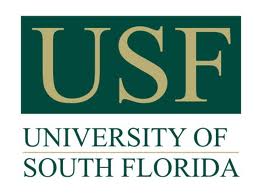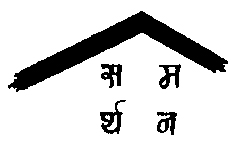/regions/political
Political
Global perspectives on water resources and environment (GloWaRE– 2012), March 22-23, 2012, Annamalai University, Annamalainagar, Tamil Nadu
Posted on 13 Feb, 2012 09:06 AM
Organizer: Department of Civil Engineering, Annamalai University, Annamalainagar
Venue: Department of Civil, Engineering, Annamalai University
Description:
Water is a vital natural resource essential for life and a precious national asset. It is a scarce resource which has to be planned, developed, conserved and managed on an integrated and environmentally sound basis; keeping in view the socio-economic aspects and needs of mankind. It is one of the most challenging tasks to ensure adequate water and food to our present and future generations. The availability of water in our country is highly variable both in space and time. Climate change, failure of monsoons, population explosion, urbanization, rising demands and anthropogenic factors lead to significant water stress. Agriculture is the mainstay of Indian economy and an assured irrigation water supply is of utmost importance for food security. Hence water resources are to be managed judiciously to guarantee adequate supplies of dependable quantity and quality, which is of major concern today.
WSSCC invites applications for WASH Media Awards, Stockholm – Apply by April 1, 2012
Posted on 13 Feb, 2012 08:42 AM
Water Supply and Sanitation Collaborative Council's (WSSCC) vision is of a world where everybody has sustained water supply, sanitation and hygiene. WSSCC's vision is centered upon a belief that sanitation, hygiene and water supply coverage is a universal human right; that people and communities are catalysts of change and can be the focus of transformative action; and that the impact of sound sanitation and hygiene will positively benefit people’s health, dignity, security, livelihoods, as well economic status.
CDD invites applications for Training on Decentralised Wastewater Treatment System, Bangalore – Apply by March 20, 2012
Posted on 13 Feb, 2012 08:25 AMConsortium for DEWATS Dissemination (CDD) Society, a not-for-profit organisation working in the field of decentralised basic need services across India.
PSGS invites applications for Smart Pot Water Challenge – Apply by April 2, 2012
Posted on 11 Feb, 2012 09:36 AM![]()

The Patel School of Global Sustainability (PSGS) fosters sustainable urban communities and environments through collaborative research, education and community involvement. Its research generates innovations and new knowledge that will help cities around the world, including those in developing countries, to reduce their ecological footprint, while improving their form and function to make them healthier, more livable and resilient. Through its research, PSGS influences global practice and policy and has become the hub of a global network of sustainability experts.
Living rivers, dying rivers: Rivers in the Western Ghats
Posted on 10 Feb, 2012 04:12 PMRiver stories from Maharashtra: Many morals to learn
Parineeta Dandekar’s presentation began with an account of some statistics related to Maharashtra, the third largest state in India. Regarding the state of water resources in Maharashtra, she noted that of the five river basin systems, 55 percent of the dependable yield is available in the four river basins (Krishna, Godavari, Tapi and Narmada) east of the Western Ghats. These four river basins comprise 92 percent of the cultivable land and more than 60 percent of the population in rural areas. 45 percent of the state's water resources are from west flowing rivers which are mainly monsoon specific rivers emanating from the Western Ghats and draining into the Arabian Sea.
With 1821 large dams and more in the offing, Maharashtra has the maximum dams in the country (35.7%). However, the proportion of gross irrigated area vis a vis the gross cropped area at 17.8 percent is much lower than the national average of 44.6 percent. The contradictions from the state, which is home to the highest number of dams, were discussed. In nearly 70 percent of the state’s villages (around 27,600 villages), water is either not available within 500 metres distance, or within 15 metres below ground level or when available is not potable (World Bank, Promoting Agricultural Growth in Maharashtra, Volume 1, 2003).
Dandekar discussed the World Bank funded Maharashtra Water Sector Improvement Project (MWSIP) initiated in 2005 whose main components were establishment, operationalisation and capacity building of Maharashtra Water Resources Regulatory Authority (MWRRA); establishment of river basin agencies in Maharashtra; and restructuring and capacity building of the Water Resources Department. The MWRRA Act (2005) has been amended, taking out the clause for equitable water distribution, and granting the Cabinet the rights to have the last say about water entitlements. This has led to a diversion of water for irrigation from the vulnerable, suicide-prone Vidarbha region to thermal power plants. According to Prayas, “entitlements of more than 1500 MCM have been changed from agriculture to industries and cities”.

"Bottle it up: We can use it" - Scientific studies on human urine - A presentation by Arghyam
Posted on 10 Feb, 2012 11:13 AMThis presentation by Arghyam includes the results of doctoral study done by G Sridevi under the guidance of Prof.
WaterAid India invites applications for Programme Officer, Lucknow - Apply by February 10, 2012
Posted on 10 Feb, 2012 01:11 AMContent courtesy: DevNetJobsIndia
![]()
WaterAid India (WAI) is an international nongovernmental organisation focused exclusively on improving poor people’s access to safe water, improved hygiene and sanitation in developing countries. WaterAid is an equal opportunities employer.
UNICEF invites applications for WASH Specialist, Patna - Apply February 10, 2012
Posted on 10 Feb, 2012 12:38 AMContent courtesy: DevNetJobsIndia

Description:
WASH Specialist (This vacancy is for Indian nationals only)
SCDS invites applications for Senior Programme Manager - WASH, Bhopal - Apply by February 10, 2012
Posted on 10 Feb, 2012 12:27 AMContent courtesy: DevNetJobsIndia

Samarthan is a support organisation working in the area of participatory development and governance primarily in the states of Madhya Pradesh and Chattisgarh since 1995. We strengthen civil society organisations, Panchayats and Urban Local Bodies and provide a supportive bridge between the voices of the underprivileged and policy makers.. Samarthan is a leading NGO in Madhya Pradesh and Chhattisgarh working on various projects supported by Ford foundation, UNFPA, SJTT, UNICEF, UNDP, Water Aid etc.
FES invites applications for Senior Project Officers/Project Officers, India – Apply by February 10, 2012
Posted on 10 Feb, 2012 12:10 AMContent courtesy: DevNetJobsIndia
![]()
The Foundation for Ecological Security (FES) works towards the ecological restoration and conservation of land and water resources, in a variety of eco-fragile and degraded landscapes across the country. The projects of FES are located in three of the ten bio-geographic zones of the country including the Semi-arid regions, the Deccan plateau in peninsular India and the Coast. Our work is focused on common lands, collectively managed by the local communities and upon which large sections of the community especially the poor continue to depend upon for their sustenance and livelihood. Currently, FES is working in about 2,200 villages, in 27 districts, addressing about 1,30,000 hectares of common land in the states of Gujarat, Rajasthan, Orissa, Madhya Pradesh, Andhra Pradesh, Karnataka and Northeast.
